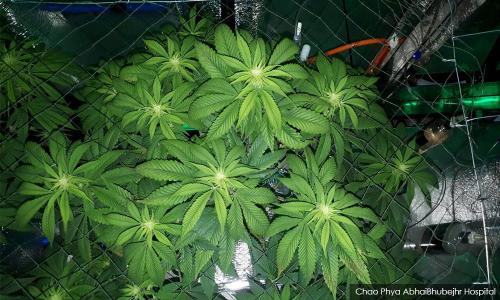LETTER | Change in law on drugs can help build the nation
LETTER | Malaysian Hemp Industry Research Association (MHIRA) welcomes the statement by the Health Minister Khairy Jamaluddin to review the Dangerous Drugs Act and Poisons Act so that regulations on the use of cannabis for medical purposes can be adjusted according to scientific evidence and data, as well as the latest research on its use.
"If cannabis is introduced in Malaysia, what is important is that it is done transparently and wisely, such as prioritizing the sativa L family such as hemp as a medical introduction without giving drug effects 'to patients'.
"This includes aspects of human capital development, science-based health and linking the hemp industry towards Sustainable Development Goals 2030 (SDG2030)", according to MHIRA President, Johan Mohamad.
In Southeast Asia, Japan, Pakistan, Nepal and Thailand are among the countries that allow the cultivation of hemp.
One of MHIRA Exco who studies on Japan Hemp Policy also reacted to the Malaysian government's decision.
“We also suggest that the MOH study the benefits of the hemp industry, including policy aspects that involve more focused ministries.
"If the Malaysian government takes seriously on social issues, economic and public health, it is time to introduce the industries for the sake of the country, " said MHIRA Agro & Police Exco, Maszeli Mohammad Wee.
MHIRA was registered in 2016 under ROS has over 600 members throughout Malaysia among researchers, farmers, cooperatives, local entrepreneurs, pharmacists, investors and academics.
Maszeli, who has just completed his Master's thesis in the title of hemp policy in Japan under the supervision of University Malaya, said the country had a better chance due to weather factors that gave a harvest of approximately five times in two years.
Maszeli admits hemp contains more cannabidiol or CBD up to 20% of compounds with no psychoactive effects. In fact, according to him, CBD products have been widely introduced in countries such as Japan and South Korea.
Cannabis is divided into three main species, namely cannabis sativa, indica and ruderalis.
Hemp is a subspecies of cannabis sativa L which has been legalised in over 67 countries for industrial purposes including medicine.
The hemp industry is a different industry than the cannabis industry which is widely used as medicine. In Australia, New Zealand, Canada, the United States and Europe, their governments allow hemp crops at compound rates of 0.3% - 1% THC.
In addition to the many research journals on non-psychoactive CBD, there is also a category of patients who need the THC compound tetrahydrocannabinol to help in managing pain.
The categories of chronic diseases in question are such as cerebral palsy, autism, epilepsy, Parkinson's and cancer. A recent study from Oregon Health & Science University "demonstrates the ability of hemp compound (CBD) to prevent the Covid-19 virus from entering human cells."
MHIRA hopes that the cannabis bill in Malaysia will be a step forward in building a progressive nation. Through its experience since its inception in research efforts, cannabis rescheduling at the international level, MHIRA is open to collaborating with ministries and agencies involved in this effort.
Ahmad Qaiyum is the deputy secretary of Malaysian Hemp Industry Research Association.
The views expressed here are those of the author/contributor and do not necessarily represent the views of Malaysiakini.
RM12.50 / month
- Unlimited access to award-winning journalism
- Comment and share your opinions on all our articles
- Gift interesting stories to your friends
- Tax deductable
